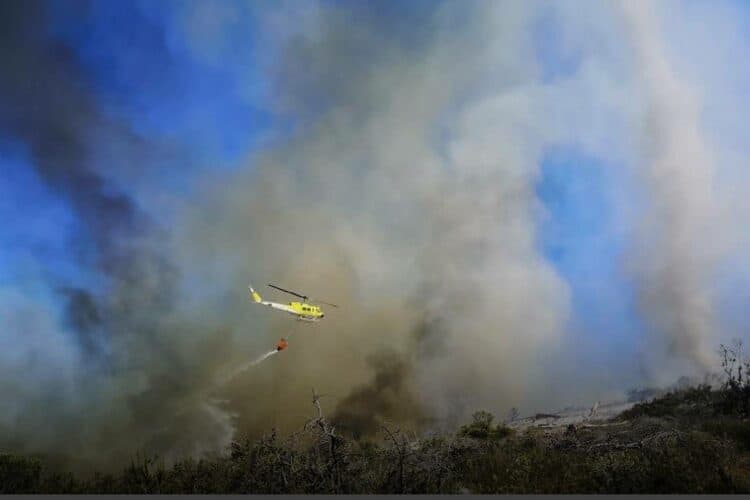The Tygerberg Nature Reserve, a cherished natural haven in Cape Town, has been temporarily closed following a fire outbreak on the Tygerberg Hills.
Why is Tygerberg Nature Reserve closed?
The closure is part of a broader effort to manage the aftermath of the blaze and ensure public safety, the City of Cape Town confirmed in a statement.
In the wake of the fire, teams from the Tygerberg Nature Reserve are diligently working to address remaining hotspots and smouldering vegetation.
Their primary focus is damping down these areas with water to avert any potential new flare-ups.
“The reserve will remain closed to the public until it is safe again to enter, and the mopping-up operations have been completed,”
The City’s Fire and Rescue Service, along with the Biodiversity Management Department, played pivotal roles in containing the wildfire that initially broke out last Thursday, 25 January 2024.
Their efforts allowed for a brief reopening of the reserve on Saturday morning. However, due to subsequent flare-ups, the reserve was closed again by 13:00 to ensure visitor safety.
Cape Town nature reserves you can visit
While the Tygerberg Nature Reserve remains closed, visitors are encouraged to explore other nearby nature reserves.
Some of the nature reserves still open near Tygerberg include:
- Durbanville Nature Reserve: Located in the northern suburbs of Cape Town, this small but diverse reserve offers a peaceful retreat with its rich floral diversity and birdwatching opportunities.
- Rietvlei Wetland Reserve: Situated in the Table View area, Rietvlei is a significant bird habitat and a popular spot for birdwatchers, with a variety of waterfowl and other bird species.
- Intaka Island: An urban oasis in the Century City area, Intaka Island is a unique wetlands and bird sanctuary, offering walking trails and educational opportunities in a surprisingly tranquil setting amidst the city.
- Blouberg Conservation Area: Located near the famous Bloubergstrand, this conservation area offers stunning views of Table Mountain and is known for its rich biodiversity, particularly its birdlife.
- Edith Stephens Wetland Park: This wetland park in Philippi is focused on the conservation of Cape Flats Sand Fynbos and Cape Flats Dune Strandveld, offering educational programs and birdwatching.
- Bracken Nature Reserve: Situated in Brackenfell, this small reserve features a variety of habitats, including sand plain fynbos, and is a great spot for a quiet walk or picnic.
- Table Mountain National Park: While not immediately adjacent, it’s a major reserve in the vicinity, encompassing the iconic Table Mountain and offering extensive hiking trails, rich biodiversity, and spectacular views.
These reserves offer a variety of recreational activities and hiking trails, and season ticket holders have access to all of the City’s nature reserves.
A silver lining to this incident is the ecological impact of the fire.
The natural vegetation that burns is predominantly Renosterveld, which undergoes a six to eight-year burn cycle.
“On the up-side, I can inform residents the area that burnt was old and in terms of ecological integrity the burn will rejuvenate the veld. We hope to see a myriad of spring flowers on the now blackened Tygerberg Hill by September,” said the City’s Deputy Mayor and Mayoral Committee Member for Spatial Planning and Environment, Eddie Andrews.
He also noted that no infrastructure was damaged in the fire.
Andrews extended his gratitude towards the community and neighbouring landowners.
“We want to thank residents who so generously provided refreshments to staff while we were managing the fire. And to our neighboring landowners, we also want to extend our gratitude for their support, cooperation, and understanding,” he stated.
The City of Cape Town will continue to monitor the situation and provide updates on the reopening of the Tygerberg Nature Reserve.






